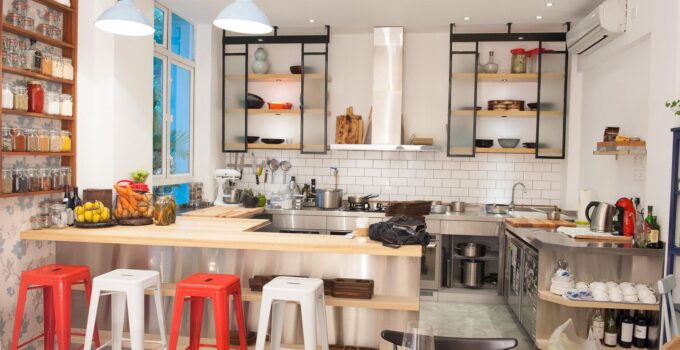If you are considering renting a commercial kitchen, you most likely have a high food production, which is your core business. It will be more profitable for your business if you have the time, energy, and resources to focus entirely on production, delivery, and sourcing for clientele.
Spending your time sorting licensing, maintaining equipment, fumigating, and all else that comes with owning your own space may be counter-productive. You may have been in the business for a while, or you are a newbie.
Either way, this article will guide you better. You will understand why you need to rent a commercial kitchen, kitchen types, essential kitchen equipment, and what else to expect.
Page Contents
Advantages of Renting a Commercial Kitchen
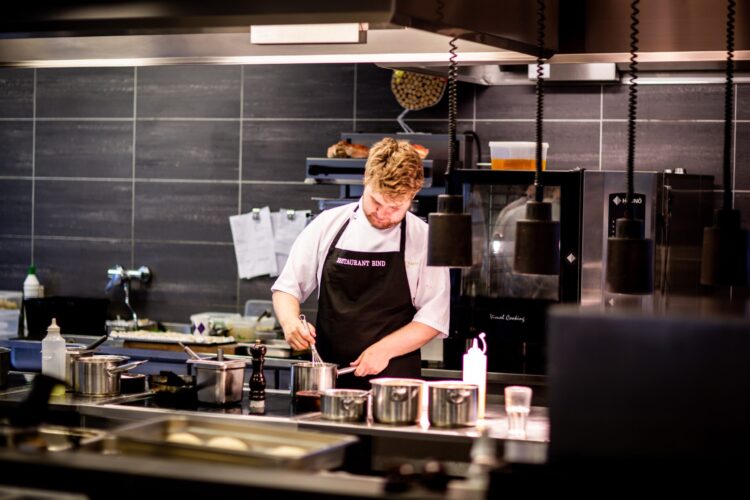
Source: 2ndkitchen.com
Owning your own space may be beyond your financial reach or perhaps unnecessary, as you may not need it all year round. No matter what part of your growth journey you are on, the versatility provided by renting a commercial kitchen simplifies your food production process. Key advantages are:
• Acquiring and Maintaining Equipment
Producing significant volumes requires commercial-grade equipment, which can be expensive to purchase and maintain. With a commercial kitchen rental, this expense is eliminated, and you’ll only need to hire on a need basis
• Staying Compliant
It is the responsibility of any commercially-licensed outfit to ensure they meet the health regulations, ensuring your compliance throughout the year.
• Underutilized Space
Owning your commercial kitchen means that there will be times it is not being utilized. While you can rent it out yourself, dealing with tenants is a headache you’d rather not have on your plate. Allow yourself to focus on your core business – catering.
• Grow Your Business
Growing your business will require demos, and space may be a challenge. However, with a commercial kitchen, demo space is easily accessible, and you can easily grow your business to unimaginable scales.
• Extra Costs
Bills like electricity, pest control, sewage, contractors, etc. are catered for, and you need not worry.
• Community
Commercial kitchens create the platform for you to meet with other like-minded people, e.g., caterers, chefs, and food producers. With whom you can exchange business ideas and seek counsel.
For a more detailed guideline on how to assess your space needs and the legal stuff required to hire a commercial kitchen.
Types of Commercial Kitchens
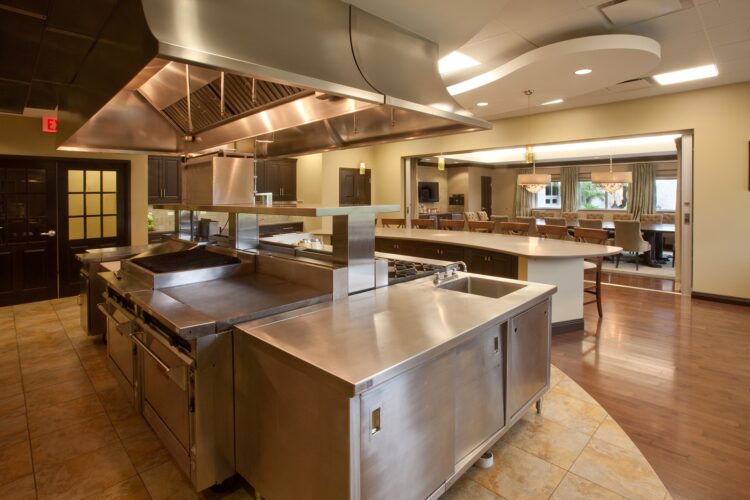
Source: medium.com
Commercial kitchens streamline the process for all kinds of vendors regardless of production size. When looking to hire one, identify which best suits your business model. Here are the three common types of kitchen spaces:
• Dark Kitchens
Also known as delivery-only kitchens, dark kitchens provide food vendors with space to cook food for delivery on apps . They have no dine-in option for customers. This means that you require a location with accessible loading docks for your delivery drivers and convenient, sufficient parking space.
• Central Production Units
When required to serve food in multiple locations, a central production unit (CPU) is more practical to use. It provides sufficient space for food preparation and cooking. This saves money on using multiple kitchens, and it’s easier to maintain food quality. It also means that space will most likely be shared with other businesses. Ensure their food production does not conflict with any products you claim yours to be free of. Also, identify if the working shifts are suitable for you and your setup.
• Catering Kitchens
Catering kitchens are for both delivery and as a CPU, are generally large (though there are small options available), and have various equipment that will make a domestic setup seem like child-play. They are mainly used by large restaurants who prefer to consolidate their food production and have a physical dine-in storefront for their customers. The convenience of a catering kitchen allows you to have your production centrally located and closer to your clientele base.
Essential Kitchen Equipment
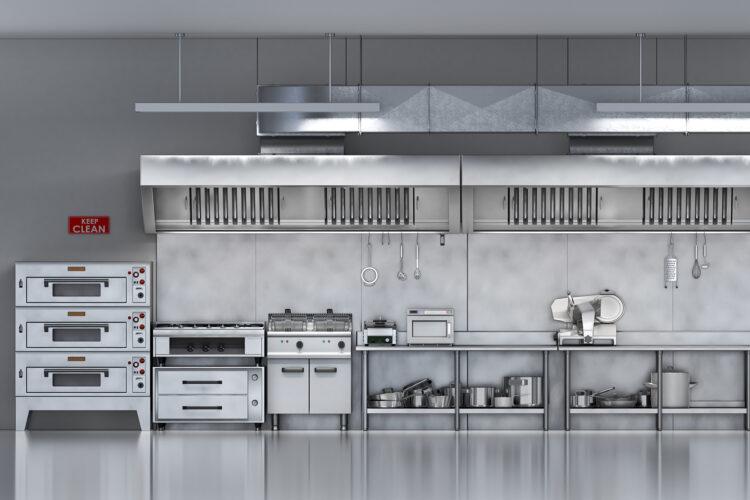
Source: samtell.com
If you have been in the business for long, you most likely know the basic equipment to look for in a commercial setting. However, sometimes you can be so overwhelmed with orders and timelines you forget to check. Here’s a guideline on essential kitchen equipment that are minimum requirements for any commercial setup:
• Prepping Tables
• Oven
• Fryers
• Fridges
• Freezers
• Large Sink or Dishwasher
• Commercial Microwave
Duration and Costs
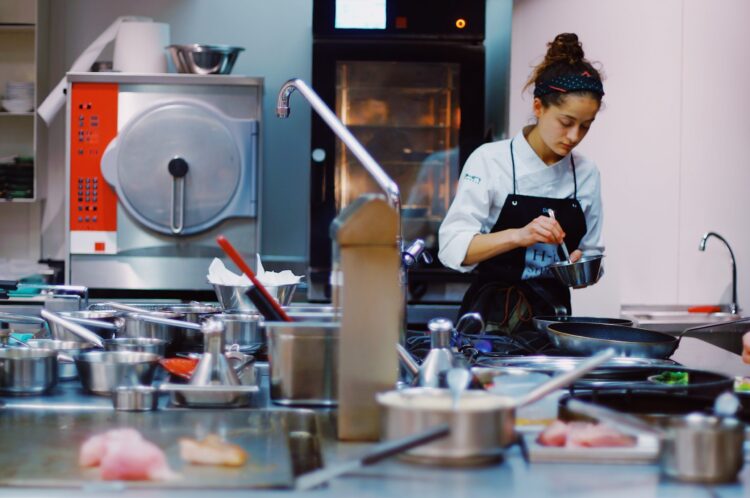
Source: 2ndkitchen.com
Circumstances and requirements are unique, and the duration you require the unit for will determine the cost. You may require a short-term contract initially, unsure of the direction your business will go. Or, your business could expand in a short time, and your requirements change abruptly. Look for a flexible contract that allows you to switch with ease. You also don’t want a contract that will penalize you if you aren’t staying for long. Request for quotations and be keen on reading the fine print as you do not want to pay hefty penalties if you require to pull out of a contract.
Ensure to hire a suitable unit for your specific needs, i.e., a dark kitchen, catering kitchen, or a CPU. The costs are subject to several variables, including size, location, and contract duration. Also, there are kitchen providers who charge food vendors commissions on food delivered. Inquire on this before signing any contract as this will eat into your profits, no matter how small, as it may add up to significant figures in the long run.
Once you are clear about your commercial kitchen needs, know what direction you would like your business to grow. Identify a central location for your business, then begin your hunt for commercial spaces to rent. Find a network of flexible commercial spaces here; get to speak with the space owners directly, agree on a price, pay, and get started with your food production. There are no hidden costs.
Whether you require an enterprise kitchen, a commercial kitchen, a kitchen incubator, a café for hire, no matter your needs, Occupyd is sure to have something suitable. They will guide you and connect you with space owners.

